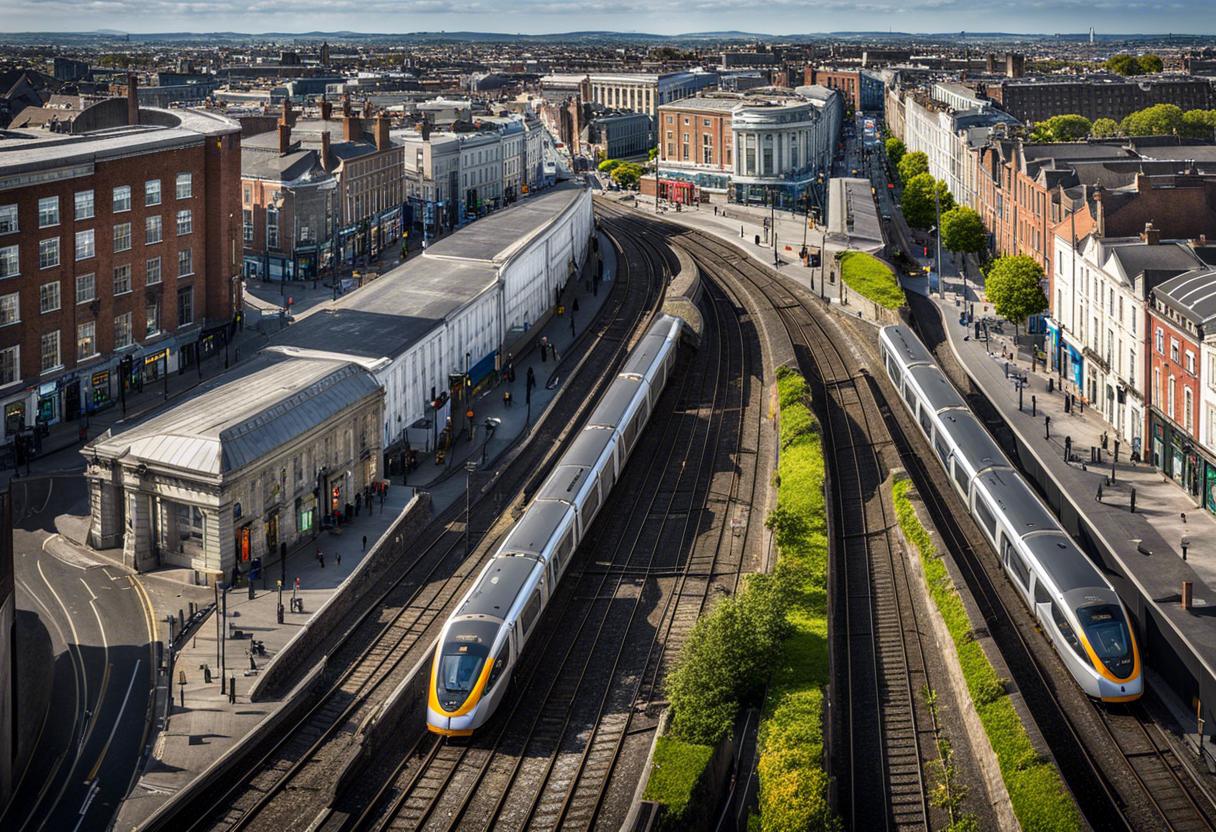According to Peter Walsh, the CEO of Transport Infrastructure Ireland (TII), the creation of the Metrolink railway is a necessary solution to Dublin’s less than efficient transportation system. He shared his views on the conclusive day of An Bord Pleanála’s hearing about the proposed 18.8km rail line. The line would feature 16 stops, spanning Swords to Charlemont, including Dublin Airport, Ballymun, and St Stephen’s Green among others.
Throughout the six-week hearing, TII showed that the Metrolink is set to be a transformative response to Dublin’s transport issues. The MetroLink is compatible with existing transport systems and its dedication to sustainability and accessibility make it a cornerstone of Dublin’s journey towards being a modern and habitable city in Europe, said Walsh.
Walsh expounds that trains, which are planned to operate every three minutes during peak hours and accommodate up to 20,000 passengers each hour in both directions, will revolutionise Dublin’s public transportation. Furthermore, this project is more than a mere transport initiative; it encapsulates Ireland’s aspirations for a sustainable, accessible, and vibrant capital city.
Walsh also commended the dedication of homeowners, business owners, and other interested parties who have contributed their thoughts on the project. Since February 19th, over 120 parties, majority of whom are homeowners have shared their concerns about the potential influence of the rail line and its development on their lives. Such concerns have come from residents of the 70 flats in College Gate complex and eight houses on Townsend Street managed by Dublin City Council, which are all slated for demolition for the proposed Tara station.
The residences that are to be demolished for the new rail line are not the only ones to be affected. Many other homes will experience the impact, especially those near planned station constructions. Several residents became overwhelmed during a meeting at the Gresham Hotel due to fears of living next to construction projects that would span a few years.
The Brian Boru pub in Glasnevin’s proprietor also expressed his poignant thoughts about the pub’s 200-year-old building getting torn down to give room for the Cross Guns Bridge station at the Royal Canal.
Several parties were of the opinion that the metro should not stretch to Charelmont, located north of Ranelagh, suggesting it should end at an earlier point instead. A fair share of parties proposed that St Stephen’s Green should be the termination point to offer a better scope for a future southern extension to the line, with others advocating O’Connell Street or Tara Street as the final stop to avert disruption to St Stephen’s Green.
The OPW and the Heritage Council have both voiced their apprehensions regarding the construction of the St Stephen’s Green station. The OPW emphasised the station’s potential threat to Ireland’s national heritage. On the other hand, the Heritage Council underlined the station’s capacity to disturb one of the city’s significant cultural heritage aspects.
A few local residents concluded the discussion on Thursday, deploring their experience with TII, marked by a disappointing absence of coherent consultation and poor engagement.
Similarly, Anne Meehan, a resident of a conservation area near the Glasnevin Station, admitted that while she believed Metrolink would receive permission for the common good, the interests of those who suffered from the project should not be ignored.
Jim O’Callaghan, a Fianna Fáil TD and Marie Sherlock, a Labour Senator, both emphasized the need for an early decision on the rail line terminus to end residents’ prolonged agony of not knowing what the future holds for their homes and communities.
Mr. Walsh expressed that the support for the metro project is undeniable, based on the arguments made at the hearing. He took note that several individuals who presented issues about certain components of the proposal also prefaced by stating their overall approval of the Metro. The Investigator of the Board, Niall Haverty, highlighted that TII plans to publicise supplementary documents submitted throughout the hearing and the public will again be invited to give their comments on those documents. Whether to have another oral debate on the subject will be determined based on the Board’s judgement.

